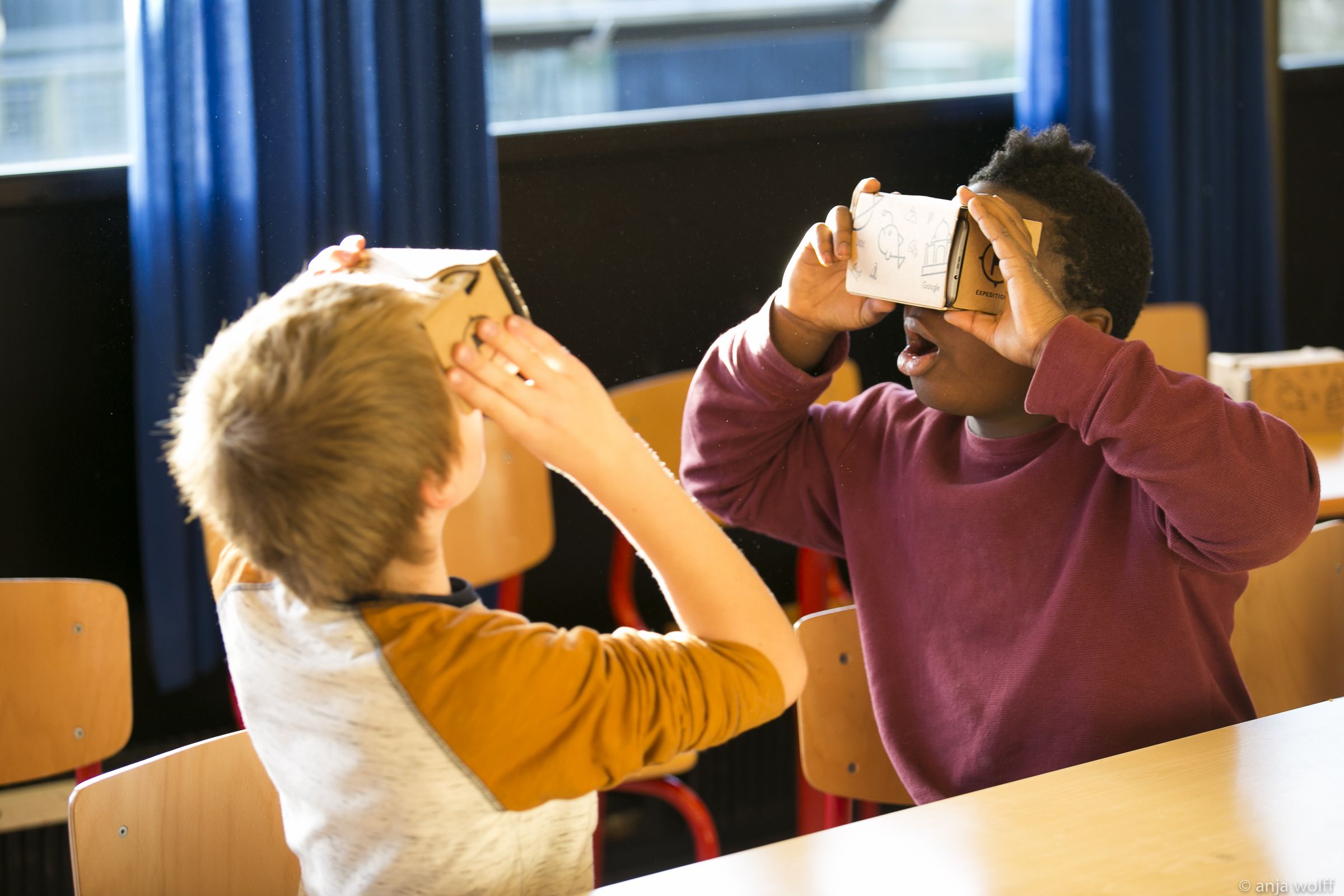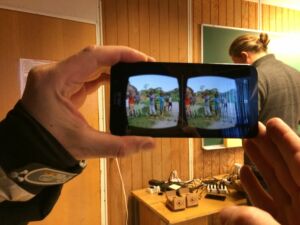On November 3, students from NGG International (NGGI) visited Mount Everest, explored the Great Barrier Reef and marvelled at the Great Wall of China. All of that without even leaving their classroom.
The school took part in a pilot project called Google Expeditions, an educational program developed by the US tech giant that allows students and teachers to explore the world through virtual reality goggles.
The program was rolled out to selected schools in September, and NGGI is only the second school on Europe’s mainland to have experienced these virtual field trips.
Immersed in visual world
The concept is based on Google Cardboard, an inexpensive cardboard viewer that turns any smartphone into a virtual reality device and allows users to view 360-degree videos and photos.
Thanks to the viewer, NGGI students were able to connect information from their lectures with specific locations and get a better understanding of the discussed topics.
“Learning is all about understanding, and this is a very affordable and engaging way to enhance learning in most of our subjects,” explained Chris Boerman, a teacher at NGGI.
Some students went on a trip to Venice to get a visual impression of Shakespeare’s ‘The Merchant of Venice’, while others virtually visited the site where the Battle of Gallipoli took place in preparation for their IGCSE exam about the First World War.
Enhanced learning
“It gives us a better understanding of what we have been reading about. I could really visualise where the different scenes in ‘The Merchant of Venice’ might have taken place,” said Elena, a 10th grade student at NGGI.
“Instead of watching a video, I am now actually part of it. When our teacher was explaining things while we were looking through the viewer, we could really focus on what she said,” added her classmate August.
NGG is constantly looking for ways to enhance students’ learning experiences, using both traditional and digital methods.
“Digital learning opportunities are becoming increasingly available and, looking to the future, we can certainly see the possibilities in using technology such as this to enhance learning in a variety of subjects,” noted Karen Bøttger, the head of NGGI.


















